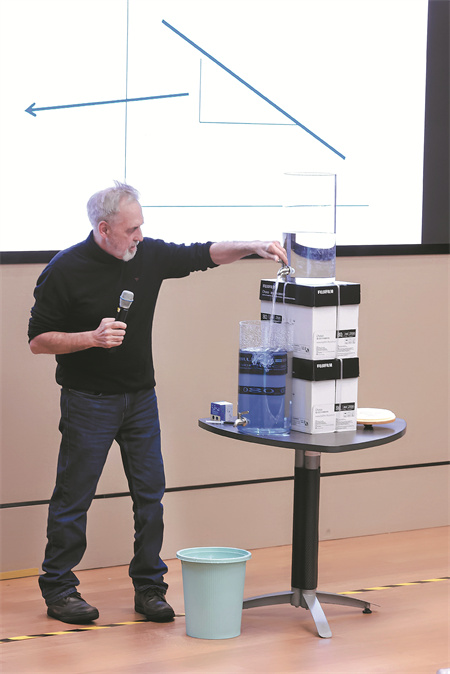

"Through long-term research and practice, we've found that effective elementary education capitalizes on children's intrinsic interest in science, and these science teachers in elementary schools play a key role in cultivating youngsters with proper science education," says Zhou Dejin, director of the Bureau of Science Communication at CAS.
Zhou notes that he hopes the science teachers who attended the training course will, in the future, also get easy access to the scientific research and specialist facilities, including labs, astronomical observatories, field stations and arboretums owned by CAS, and make use of these resources in designing or delivering science classes.
"We welcome them to organize educational activities and return with their students," Zhou adds.
Tu Yujuan, a science teacher with the Experimental School of Shenzhen Institute of Advanced Technology, says that if these scientific facilities and equipment can be made available for science teachers, it will be more convenient for them to explain certain subjects to young students.
"For instance, normally we use animated videos or posters to visualize how the human blood circulatory system works," she says.
"An immersive and interactive virtual reality application can be more effective in helping students understand the system."
Tu, on one hand, attaches importance to incorporating advanced scientific resources in elementary education, and on the other, highlights the importance of being an acute observer of details in everyday life, which might spark young students' interest in science.
She says that her students once felt confused when they were required to wash their hands frequently.
The teacher took them to investigate the impact of washing hands in a lab.
"I encouraged them to observe, through the microscope, the bacteria, fungi and other microorganisms on an unwashed hand and a washed hand. By applying scientific methods, they now understand why hand hygiene is important," she says.
A graduate of the College of Chemistry and Environmental Engineering in Shenzhen University, Tu enjoys being a primary school science teacher, as she has found the curiosity of her students is both infectious and inspiring.
"I hope I can help turn their curiosity into lasting motivation for their exploration of science," she says.
As the training course concluded, a survey was conducted to collect the thoughts of the attendees.
"A keyword in their feedback is 'enthusiasm'," recalls Ding Ningning, one of the developers of the training course and a publicist at CAS Shenzhen Institute of Advanced Technology.
"Many of them used to be disheartened, as science is a course traditionally overlooked in elementary education. However, feeling that they are supported by such abundant educational resources, their enthusiasm has been ignited," says Ding.